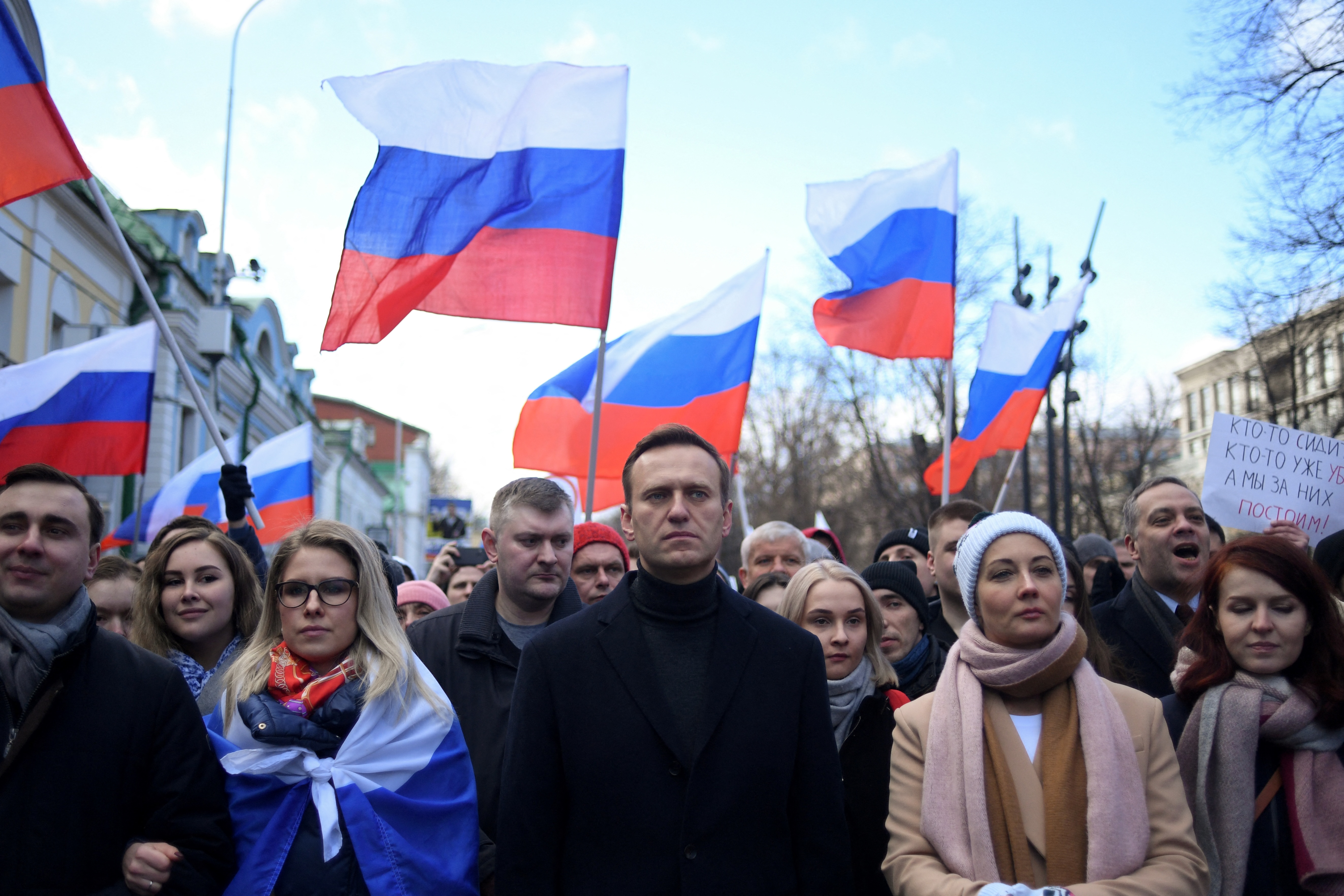Navalny, Alexei (1976-2024), was a Russian activist and political prisoner. He was an outspoken critic of Vladimir Putin, the Russian politician who has led Russia as either president or prime minister since 1999. Navalny’s work against corruption brought him persecution, and in 2024, he died in a Russian prison.

Alexei Anatolyevich Navalny was born June 4, 1976, in Butyn, a town on the outskirts of Moscow. His father was an officer in the Soviet army, and his mother was an economist. Navalny studied at the Peoples’ Friendship University in Moscow, graduating in 1998 with a law degree. After working briefly at a real estate company, Navalny studied at Russia’s Finance Academy, earning a degree in 2001.
In 2007, Navalny bought shares in the oil producer Rosneft; Gazprom, a natural gas company; and Transneft, the largest oil pipeline company in the world. By buying shares, Navalny gained access to company information only available to shareholders. He hoped that the financial disclosures would give him better insight into any corruption happening at the companies. Navalny also founded a group called the Union of Minority Shareholders in 2008. Later that year, a newspaper reported that Transneft had suspiciously donated $300 million to an unnamed charity. In 2010, Navalny alleged that Transneft had embezzled billions of dollars. Navalny then launched RosPil, an anti-corruption website that collected, verified, and published information about corruption in government. The following year, Navalny led major protests against corruption and election fraud in Russia.
Navalny also participated in politics. In the 2000’s, he was a member of the liberal Yabloko party but was kicked from the group after criticizing its leaders and attending a far-right rally. In 2013, Navalny ran in Moscow’s mayoral election but lost with 27 percent of the vote.
Navalny’s anti-corruption work brought scrutiny and retaliation. His family businesses were investigated. Navalny was arrested and sentenced to five years in a labor camp for allegedly embezzling funds from a politician he advised years earlier. He only served one day of his sentence, but the conviction made him ineligible for public office, effectively ending any political aspirations. Nevertheless, Navalny’s anti-corruption work continued.
In 2017, he was attacked with a bright green dye that stained his face and damaged his right eye. He was arrested again in May 2018 but was released shortly after. In 2018, he attempted to run for president of Russia but was blocked by the government because of his earlier arrest. Navalny survived an assassination attempt in 2020 after being poisoned with the toxic nerve agent Novichok. He was airlifted to a hospital in Germany, where he was placed in a medically induced coma for a little over two weeks. Russian officials denied any involvement in the assassination attempt.
In January 2021, Navalny returned to Russia and was arrested for violating his parole agreement by fleeing to Germany. He was transferred to a penal colony and then placed in solitary confinement in 2022. In June 2023, Navalny was charged with extremism; the creation of a non-governmental organization that, according to Russian authorities, infringed on citizens’ rights; and the rehabilitation of Nazism and sentenced to 19 years in prison.
Navalny died in prison on Feb. 16, 2024. His wife, Yulia Navalnaya, along with leaders around the world blamed Putin for Navalny’s death.
